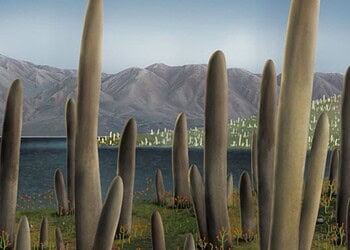Trees killed by invasive species also affect the atmospheric carbon dioxide, a new study shows.

Biological life has its own ways of getting around, but mankind has sent biological movement into overdrive. Globalization doesn’t only affect our society, it affects all ecosystems. Whether it’s mussels attached on a ship’s hull or seeds and plants being brought unintentionally on international shipments, mankind has become a major driver of invasive species — and the consequences are severe.
The United States has traditionally been home to large forest expanses — but that may no longer be the case. Faced with large-scale deforestation, trees have conceded large swaths of land. Now, they’re faced with a new threat: invasive pests.
Some infestations are well-known. The Dutch elm disease and American chestnut fungal disease, for instance, have made headlines with their devastating effects. But many more are causing damage, researchers say. In the new study, the team described thousands of forest plots across the U.S. and the mortality rates due to 15 major tree pest infestations.
Previous studies have already described some 450 invasive tree pests that can damage or kill trees (most of which were brought through international trade or travel). In the new study, the team assessed just how dangerous some of these pests can be.
Around 40% of all forests in the US are under serious threat from invasive species — and the problem shows signs of getting worse year after year. There are also few possible solutions once a tree population has been infected. In most situations, the best thing researchers can do is quarantine the healthy populations to make sure the pest doesn’t spread to them as well.
Not only can invasive pests kill almost half of the US forests, but the damage cascades onto other species. Entire ecosystems can collapse if the trees are killed, and the potential for natural disasters is substantially raised.
It’s not just local, either — the effects can be felt at a global scale. Trees are excellent tools for carbon storage, and the invasive pests kill enough trees to eliminate 6 million tons of carbon atmospheric carbon storage — the equivalent of adding 4.6 million cars on the roads.
Researchers hope that this will raise awareness on this issue and push the introduction of preventive measures.
Journal Reference: Songlin Fei et al. Biomass losses resulting from insect and disease invasions in US forests, Proceedings of the National Academy of Sciences (2019). DOI: 10.1073/pnas.1820601116.






